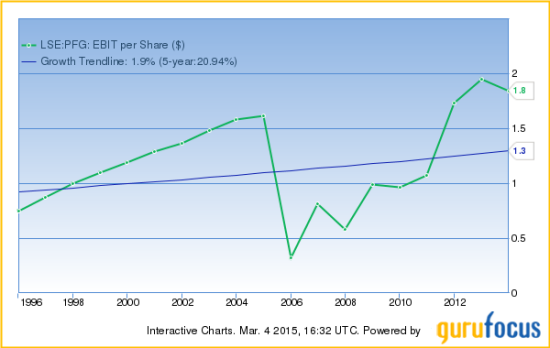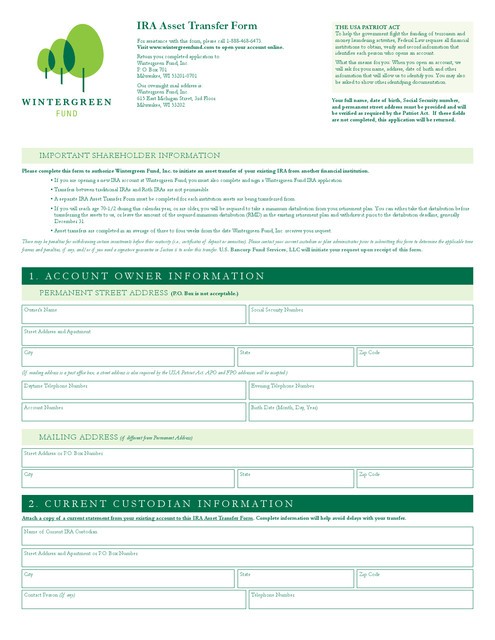Wintergreen Fund
Post on: 24 Июнь, 2015 No Comment

Dear Fellow Wintergreen Fund Shareholder,
EXCERPT FROM THE 2014 ANNUAL REPORT SHAREHOLDER LETTER
Posted March 2, 2015
For the year ended December 31, 2014, the gain of the Standard & Poor’s 500 Composite Index (S&P) was striking because of the extremely narrow range of securities that contributed to the performance of the S&P. If you did not own the top 25 gainers, you missed out on over 50% of the S&P’s overall returns. The technology sector contributed an astounding 29% of the return, health care 26%, and financials 19% overall these 3 sectors contributed over 74% of the S&P’s performance.
During the recent period, Wintergreen Fund, Inc. (the Fund or Wintergreen) has remained true to its core investment philosophy. The Fund remains concentrated with about 35 positions. We have watched as many other funds have morphed into quasi-index funds, holding hundreds of positions and being slightly overweight or underweight to their benchmark in select cases. We don’t believe that is what the goal of an actively managed mutual fund should be. We will not invest in securities that we don’t have conviction in or jump on the bandwagon only because they are going up. The Fund’s portfolio turnover remained low (13%) in 2014, as we remain long-term investors. We will not try to time stock markets. We continue to rely on our long-standing belief that the following three criteria are the hallmark of good investments:
First, a business that has good or improving economics, and often generates sales and profits in multiple currencies and jurisdictions;
Second, a management team that is working for the benefit of all shareholders and not just for its own short-term compensation; and
Third, the security is available at a compelling price.
During the dot-com mania of the late 90s, there was a similar period of time when the value investing approach was out of favor. Technology stocks were untouchable; they had wild valuations and went up every day, seemingly with complete disregard to any underlying fundamentals. As you recall, shortly thereafter, the tech bubble collapsed, value returned to favor, and the long-term value approach performed very well. Staying true to our core principals worked then, and we firmly believe our investing process will again return to favor.
During 2014, the Funds Institutional Class of shares and Investor Class of shares had slightly negative returns. The Fund had strong returns from long-term portfolio holdings Reynolds American Inc. Consolidated-Tomoka Land Co. and Jardine Matheson Holdings Ltd. which was sold during the year. Securities that underperformed included Swatch Group AG, Wynn Macau Ltd. and Galaxy Entertainment Group Ltd. The Fund also utilized forward currency contracts which had an overall positive impact on performance during the period.
If you have an important point to make, dont try to be subtle or clever. Use a pile driver. Hit the point once. Then come back and hit it again. Then hit it a third time — a tremendous whack.
-Winston Churchill

David J. Winters, CFA
Portfolio Manager
The views contained in this report are those of the Funds portfolio manager as of December 31, 2014, and may not reflect his views on the date this report is first published or anytime thereafter. The preceding examples of specific investments are included to illustrate the Funds investment process and strategy. There can be no assurance that such investments will remain represented in the Funds portfolios. Holdings and allocations are subject to risks and to change. The views described herein do not constitute investment advice, are not a guarantee of future performance, and are not intended as an offer or solicitation with respect to the purchase or sale of any security.
The Fund is subject to several risks, any of which could cause an investor to lose money. The Fund may purchase risk arbitrage securities (securities of companies involved in a restructuring) or distressed companies. These companies may not be successful in their restructuring and securities of distressed companies are generally more likely to become worthless than securities of more financially stable companies. Smaller companies involve substantial risk as these securities are traditionally more volatile in price than larger company securities. Securities rated below investment grade, sometimes called junk bonds, involve a greater degree of risk than investment grade bonds in return for higher yield potential. The Fund may be subject to interest rate risk which is the risk that debt securities in the Fund’s portfolio will decline in value because of increases in market interest rates. By participating in derivative securities, the Fund may attempt to hedge (protect) against currency risk which is the risk that the value of foreign securities may be affected by changes in currency exchange rates. Derivatives can be volatile and involve various types and degrees of risks, depending upon the characteristics of a particular derivative. International investing involves certain risks and increased volatility not associated with investing solely in the U.S. These risks include currency fluctuations, economic or financial instability, lack of timely or reliable financial information or unfavorable political or legal developments. These risks are magnified in emerging markets. Short sale risk is the risk that the Fund will incur an unlimited loss if the price of a security sold short increases between the time of the short sale and the time the Fund replaces the borrowed security.
Before investing you should carefully consider the Fund’s investment objectives, risks, charges and expenses. The prospectus and summary prospectus contain this and additional information regarding the Fund. To obtain a prospectus or summary prospectus, please download from this site or call toll-free 1-888-468-6473. The prospectus and summary prospectus should be read carefully before investing. This website is not a solicitation for the Fund outside of the United States.
Foreside Fund Services, LLC, distributor (www.foreside.com )














